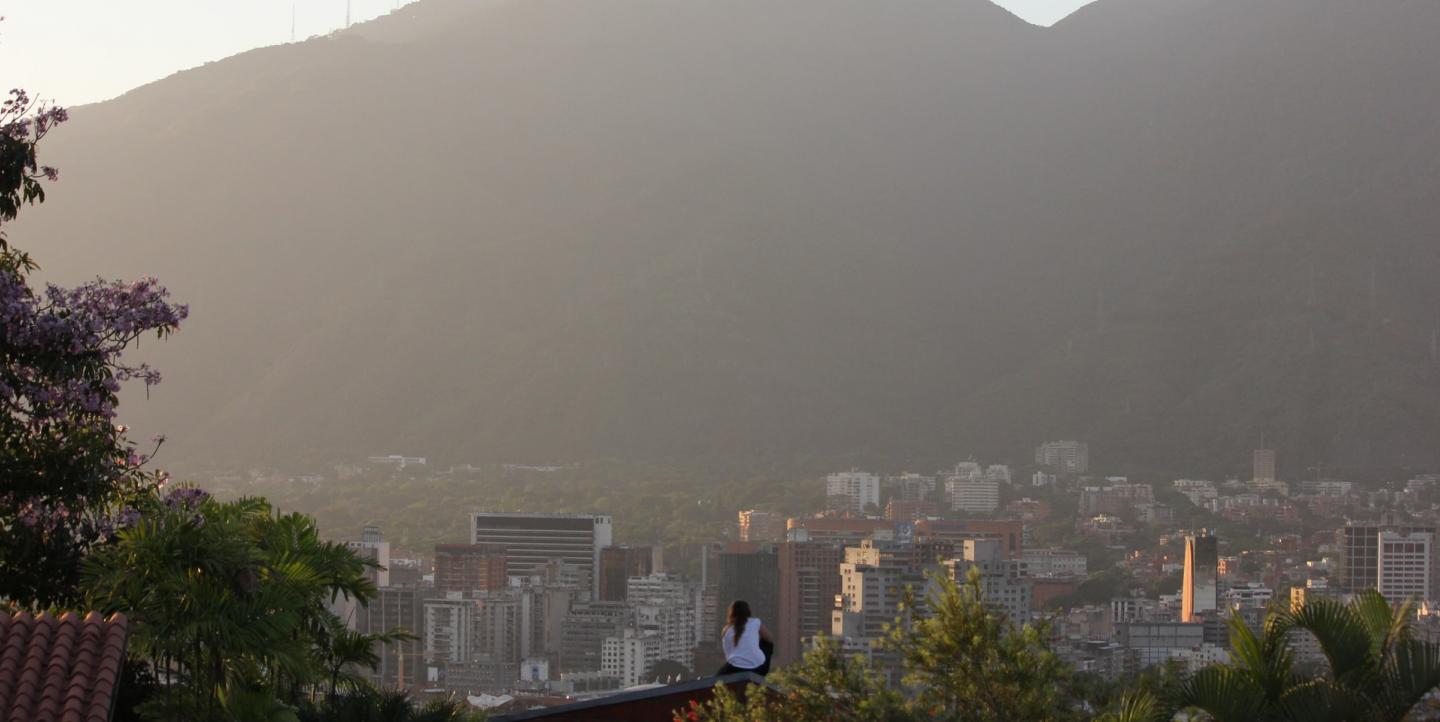In various Latin American countries, journalists must navigate oppression to report freely. They work against authoritarianism, corrupt judicial systems, and repressive, radical governments.
In a recent #DiálogoCONNECTAS discussion organized by ICFJ, IJNet and CONNECTAS, journalists from Cuba, Bolivia, El Salvador, Nicaragua and Venezuela discussed the realities they face. In these countries, despite media outlets closing and attacks against them, journalists are developing strategies to keep at their reporting. They face persecution by police and the military, stigmatization by those in power, court-ordered raids, intimidation and illegal wiretapping, among other threats.
The panel included Jessica Ávalos, a Salvadoran journalist with Revista Factum; José Jasán, general editor of El Toque in Cuba; Nelfi Fernández, an investigative and data journalist in Bolivia; Nelson Bocaranda, editor-in-chief of Runrun.es in Venezuela, and Octavio Enríquez, a Nicaraguan journalist and CONNECTAS editor.
Threats and harassment
Escalating persecution and threats from those in power have forced many journalists in Latin America into exile. In Nicaragua, for example, more than 70 journalists have fled the country since 2018. As a safety measure for journalists remaining in the country, articles they publish are often given bylines of colleagues living abroad, explained Enríquez.
In El Salvador, journalists see themselves as part of the “resistance,” said Ávalos. This is a major reason they no longer view each other as competition; instead, they’re helping each other get information out to the public. At the same time, the government has been quick and effective at intimidating reporters in a variety of ways and places, which is a constant not only in El Salvador, but in other countries across the region as well.
In Bolivia, the government is often attempting to discredit media organizations and journalists, explained Fernández. As a result, journalists struggle with self-censorship and wage instability. In Cuba, the situation is even more dire, said Jasán, since most media is government-controlled. For that reason, many independent journalists have been imprisoned, detained and exiled.
Along the same lines, the Venezeulan government is now blocking the websites of media organizations in the country. To combat government censorship, media organizations have begun creating mirror sites. However, these sites can struggle with SEO performance and reaching their audiences, as Google does not consider them original websites. This situation has resulted in a daily struggle to communicate to the public what is going on in Venezuela, noted Bocaranda.
How are journalists overcoming obstacles?
Journalists in countries such as Cuba, where government censorship has long existed, are a helpful resource for colleagues in other countries, where reporting in such circumstances has developed more recently. As Enríquez explained, the role of the media is to inform audiences with clarity and transparency — in contrast to the “fear and repression” these governments exploit.
Journalists are also collaborating with civil society organizations. In Cuba and Venezuela, these organizations create funds to help pay for the release of journalists from jail, or to cover their legal defense costs.
Reporting in these countries is made more difficult, too, by the fact that sources are often reluctant about being identified, said Enríquez. To deal with this, media organizations conduct rigorous reporting and make sure to have journalists on the ground throughout the country to explore each topic in depth. It’s key, Ávalos said, to avoid bias when reporting as well.
The panelists stressed the importance of mental health support for news teams, due to the crisis situations everyone is navigating. They also recommended that media outlets create manuals with guidance for what editors should do in the event the government arrests, interrogates or accuses, without evidence, a journalist from their newsroom of a crime. Sharing best practices for navigating these crises will help more journalists handle these situations without having to leave journalism entirely.
Reporting in places where governments are continually chipping away at democracy requires journalists to be watchdogs, documenting government actions. Bearing in mind that governments in these countries try to impose their own truths and misinformation on the public, media organizations can best confront governments by transparently reporting facts.
Throughout Latin America, journalists forge ahead, continuing to inform the public even when governments make it a crime to do so. Facts and data, as well as the support of civil society organizations, help make this reporting possible. Even more importantly, collaboration between journalists is key. As Bocaranda said, “collaborative journalism is the journalism of the future.”
You can watch the full panel discussion in Spanish here.
This article was originally published by CONNECTAS and is republished on IJNet with permission. It was translated to English for IJNet by journalist Natalie Van Hoozer.
Photograph by Fernando Gago on Unsplash.

